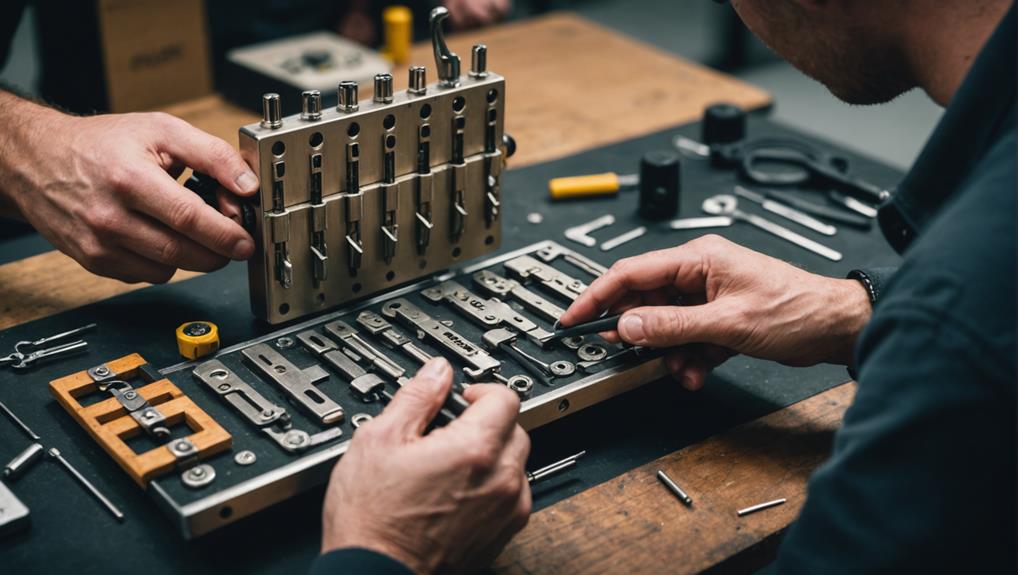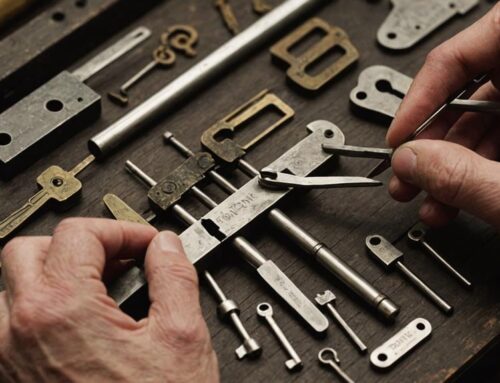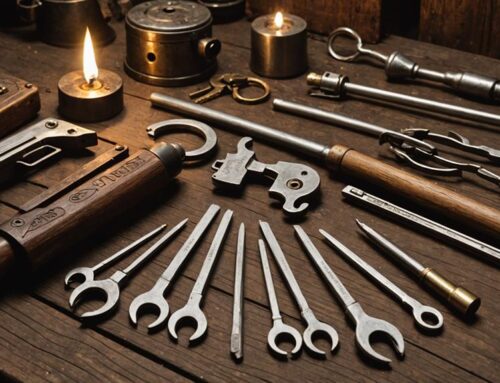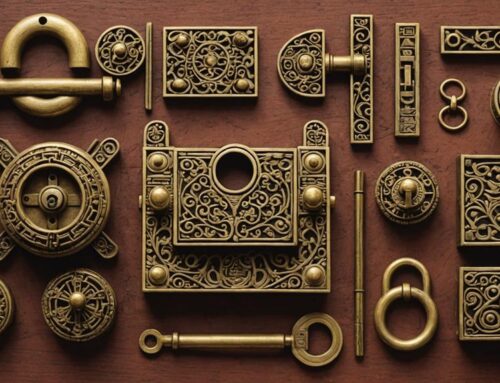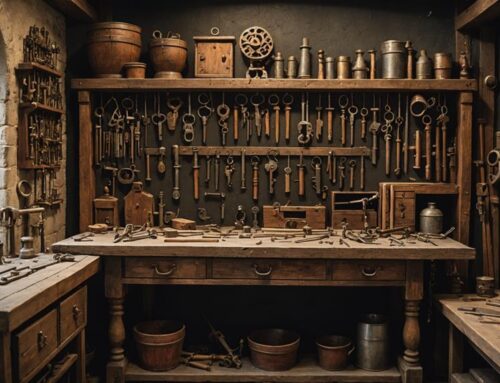To succeed in lock picking competitions, master various lock types, refine tool selection, develop sensitive touch, understand lock mechanisms, balance speed and precision, and prepare mentally and physically. Learn to recognize cues in pin tumbler and disc detainer locks, use a diverse set of tools, and practice to build muscle memory. Find the sweet spot between quick movements and accurate actions, adapting your pace based on lock familiarity. Engage in mental visualization and positive self-talk for confidence, rest well, and maintain physical fitness for top performance. These strategies lay the foundation for your success in lock picking competitions.
Key Takeaways
- Master various lock types and mechanisms for competition advantage.
- Use diverse, high-quality tools like tension wrenches and lock picks.
- Develop sensitivity to lock feedback and muscle memory through consistent practice.
- Balance speed and precision by adapting to different lock types.
- Engage in mental and physical preparation, including visualization and rest.
Mastering Different Lock Types

To excel in lock picking competitions, mastering different lock types is essential. In a competition setting, you'll encounter various types of locks that require different techniques to open successfully.
Understanding the mechanisms of pin tumbler locks, wafer locks, disc detainer locks, and other common types will give you a competitive edge. Pin tumbler locks, for example, are the most widely used and consist of pins of varying lengths that must be aligned to the shear line to open the lock.
Mastering pin tumbler lock picking techniques can greatly improve your skills. On the other hand, disc detainer locks use rotating discs that must be positioned correctly to access the mechanism.
Knowing how to approach each type of lock efficiently will save you time during competitions and increase your chances of success.
Efficient Tool Selection
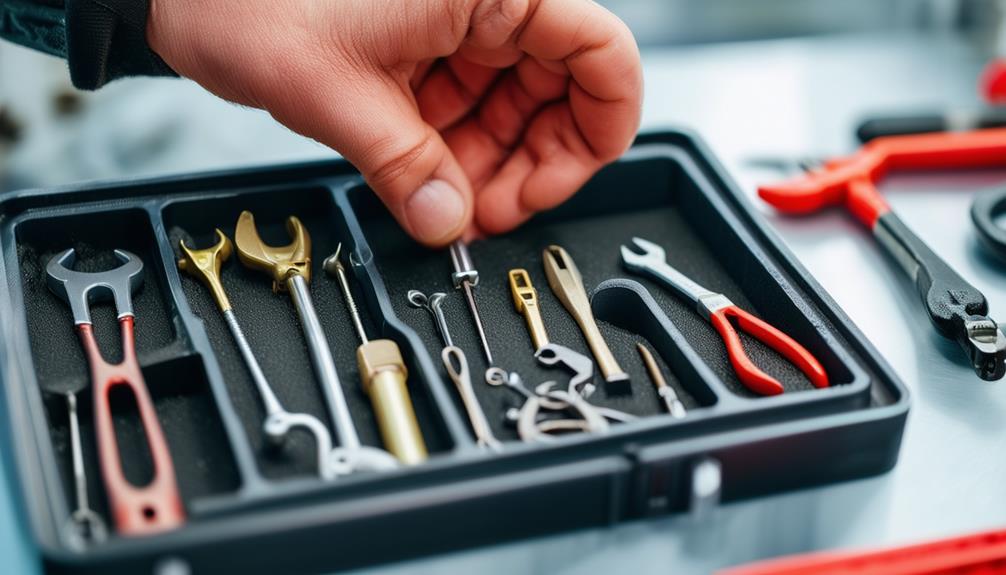
When selecting tools for lock picking competitions, your choice plays a significant role in your success. In competitive lockpicking, it's essential to have a diverse set of tools at your disposal.
Start by understanding the different types of locks you may encounter and the corresponding tools needed. A thorough understanding of fundamental tools can give you an edge in competition, as seen in essential tools for experts.
Tension wrenches are crucial for applying pressure to the lock, while lock picks are used to manipulate the internal pins. Consider the size and shape of the tools, as they should be comfortable to handle and allow for precise movements.
Having a variety of tools can help you adapt to different lock mechanisms quickly. Practice with different tools to become proficient in using them efficiently.
Quality tools can make a significant difference in your performance, so invest in durable and reliable options. Remember, it's not about having the most tools, but about having the right tools and knowing how to use them effectively.
Choose your tools wisely, practice diligently, and you'll be well-equipped for competitive lockpicking success.
Developing Sensitive Touch
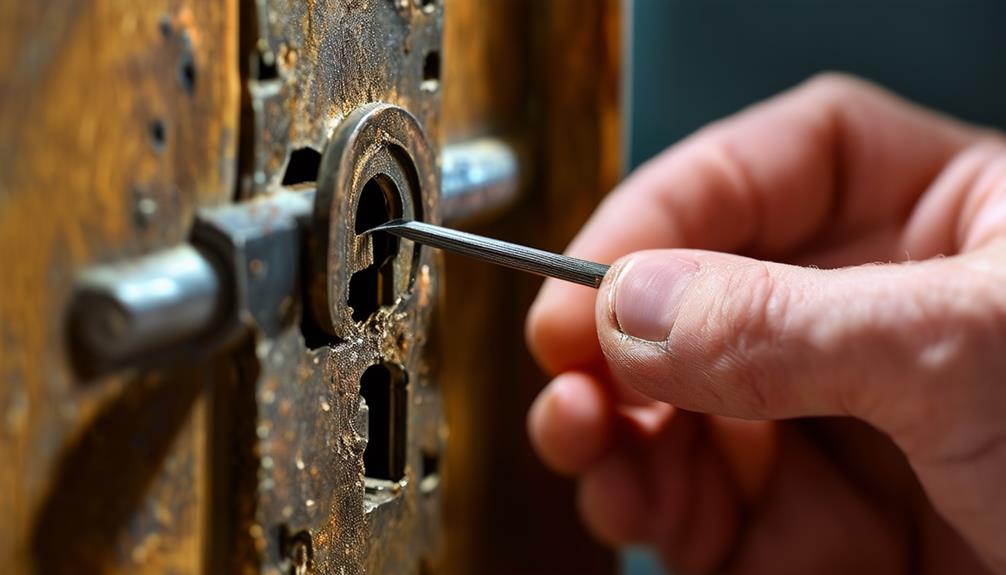
As you advance in competitive lock picking, honing your sensitivity to touch becomes increasingly essential. Developing a keen sense of touch is vital for success in competition lock picking.
Mastering advanced techniques can further enhance your tactile awareness and understanding of lock mechanisms. Here are some tips to help you improve your sensitivity:
- Practice regularly: Consistent practice can help you refine your tactile skills and become more attuned to the subtle feedback from the lock.
- Experiment with different tools: Trying out a variety of tools can help you understand how different materials and designs interact with the lock mechanism.
- Pay attention to feedback: Focus on the sensations you feel when manipulating the lock, such as clicks, resistance, and feedback through your tools.
- Fine-tune your technique: Adjust your technique based on the feedback you receive from the lock to optimize your chances of success in competition lock picking.
Understanding Lock Mechanisms

Understanding Lock Mechanisms
Delving into competitive lock picking requires a solid grasp of lock mechanisms. To succeed in lock picking competitions, it's essential to understand how different types of locks function.
Pin tumbler locks, which are commonly used in competitions, consist of a plug that rotates within a housing. Inside the plug are a series of pins of varying lengths. When the correct key is inserted, it aligns the pins at the shear line, allowing the plug to turn and the lock to open. Knowledge of lock components is vital for effective picking, as different locks present unique challenges, akin to solving a puzzle mastering lock picking skills.
Mastering the art of lock picking involves recognizing the feedback provided by the lock. As you apply pressure with your tension tool, pay close attention to the subtle movements and clicks within the lock.
These tactile cues can help you determine the binding order of the pins and eventually release the mechanism.
Speed vs. Precision Balance

Exploring the delicate balance between speed and precision is key in the domain of competitive lock picking. In lockpicking competitions, finding the right equilibrium between these two aspects can notably impact your performance.
Mastering both elements can make a difference in your overall success, especially when you incorporate proven techniques from experienced competitors. Here are some tips to help you navigate the speed versus precision dilemma:
- Practice Efficient Movements: Work on honing your technique to guarantee each movement is deliberate and purposeful.
- Focus on Feedback: Pay attention to the feedback your tools give you to adjust your approach accordingly.
- Master Different Lock Types: Familiarize yourself with various lock mechanisms to adapt your speed and precision based on the challenge at hand.
- Stay Calm and Focused: Maintain your composure during the competition to strike the right balance between speed and precision without sacrificing accuracy.
Practice and Muscle Memory
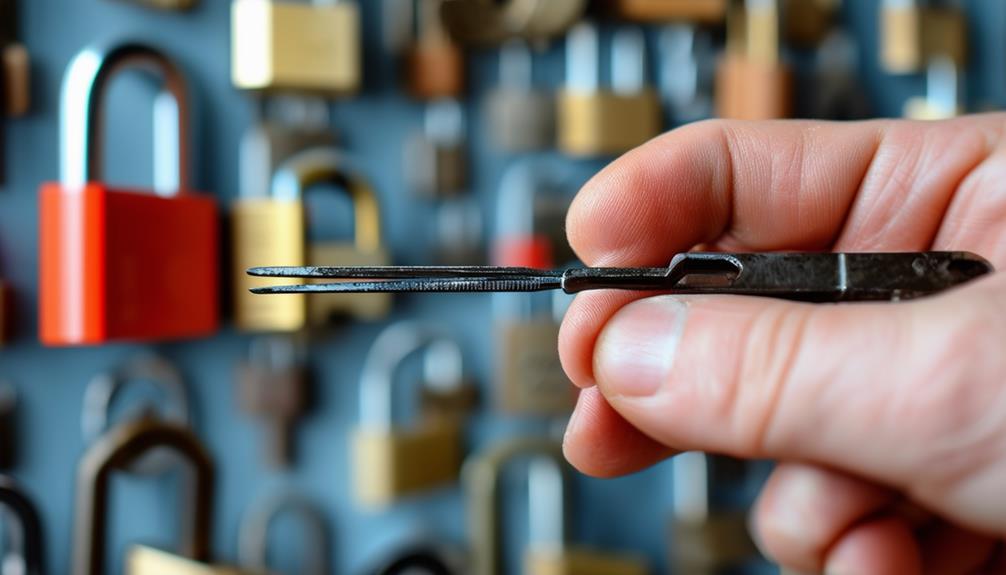
Engaging in consistent practice is the cornerstone of developing muscle memory essential for success in competitive lock picking. According to tips for success, thorough and focused practice can lead to significant improvements in your lock picking skills.
Through regular practice, you train your hands and mind to work together seamlessly, enabling you to pick locks with speed and precision. The more you practice, the more automatic the movements become, allowing you to focus on the task at hand without overthinking each step.
To build effective muscle memory, vary your practice sessions by working on different types of locks and challenging yourself with new techniques. This will strengthen your skills and prepare you for the unpredictable nature of lock picking competitions.
Remember, quality practice is key – focus on proper technique and form rather than rushing through exercises.
As you dedicate time to practice, you'll notice improvements in your speed, accuracy, and overall performance. Consistent practice not only enhances your muscle memory but also boosts your confidence during competitions.
Mindful Competition Preparation

Mindful Competition Preparation
Preparing for lock picking competitions requires a mindful approach that goes beyond just honing your technical skills. To increase your chances of success and implement winning lockpicking strategies, consider the following:
– Mental Preparedness: Engage in relaxation techniques to calm your mind before the competition, allowing you to focus and think clearly under pressure.
Understanding the importance of safe practices for all can enhance your confidence in your skills.
– Visualize Success: Picture yourself successfully picking locks and visualize the movements and sensations associated with it.
This mental rehearsal can boost your confidence and performance.
– Strategic Planning: Analyze the types of locks commonly used in competitions and develop a plan of attack for each one.
Understand their mechanisms and practice techniques specific to those locks.
– Physical Readiness: Confirm you're well-rested and physically fit on the day of the competition.
Physical stamina can be an essential factor in maintaining focus and dexterity throughout the event.
Frequently Asked Questions
Can Lock Picking Skills Be Used for Illegal Purposes?
Yes, lock picking skills can be misused for illegal activities.
It's important to understand that while lock picking itself is a valuable skill for security professionals and hobbyists, some individuals may use it for unauthorized entry or theft.
It's vital to always practice ethical behavior and only use lock picking techniques in legal and appropriate situations.
Are There Any Age Restrictions for Lock Picking Competitions?
Age restrictions for lock picking competitions vary, but typically participants must be at least 18 years old.
This guarantees a level playing field and upholds safety standards.
Remember, it's never too late to learn this skill and improve your abilities.
So, if you're under 18, keep practicing and honing your skills.
Your time will come, and you'll be ready to compete when you meet the age requirements.
How Do Lock Pickers Prevent Hand Fatigue During Competitions?
To prevent hand fatigue during competitions, lock pickers can take breaks and stretch their fingers.
Remember to maintain good posture and grip the tools lightly to avoid straining your muscles.
Also, consider using tools with ergonomic handles to reduce the strain on your hands.
Staying hydrated and practicing proper hand positioning techniques can help you maintain endurance throughout the competition.
Are There Any Specific Lock Picking Techniques for Left-Handed Individuals?
If you're left-handed, you might find it beneficial to adjust your grip and positioning slightly to accommodate your dominant hand.
Experiment with different angles and pressures to find what works best for you.
Remember to practice regularly to build muscle memory and improve dexterity.
Stay patient and persistent as you hone your skills.
With dedication and practice, you can excel in lock picking competitions, regardless of your dominant hand.
What Are the Most Common Mistakes Made by Beginner Lock Pickers?
When starting out, beginners often struggle with applying too much tension on the lock, causing pins to bind.
Rushing through the process can lead to missing feedback from the lock. Avoid using inappropriate tools that can damage the lock.
Lack of patience and practice is a common mistake, as picking locks requires precision and finesse.
Remember to start with simple locks and gradually progress to more complex ones to build your skills effectively.
Conclusion
In lock picking competitions, remember: like a skilled musician playing a complex piece, mastering different lock types, selecting the right tools, and developing a sensitive touch are key to success. Just as a musician practices diligently to perform flawlessly, practice and muscle memory are essential in honing your lock picking skills. So, keep practicing, stay focused, and always endeavor to improve – success will follow.

